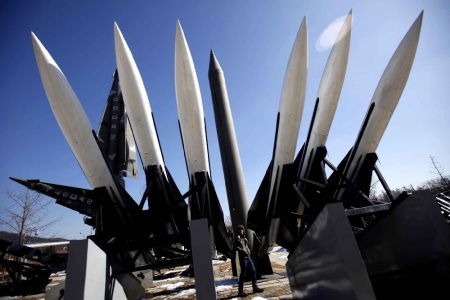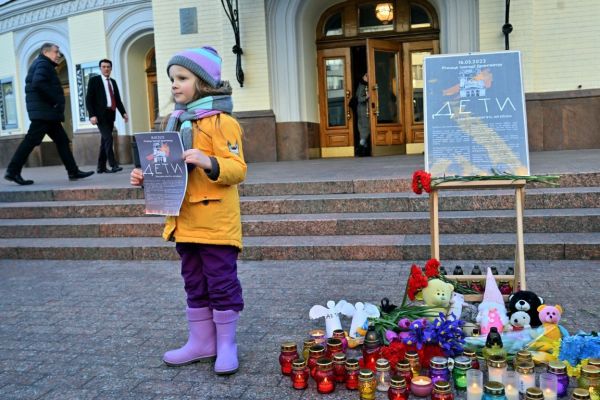Why are American Christians the Only Around the World Not Wanting to Ban Nuclear Weapons?
According to World Evangelical Alliance's Permanent Representative Deborah Fikes, American Christians are outliers among the global church in their lack of support for nuclear arm disarmament. But why?

"In the US there is a very large lack of understanding," Fikes said earlier this week. "…We are just not educated. We are ignorant on this issue. I am convinced that if we could educate our constituents in the U.S, particularly those in the younger generation, we will change the equation."
On Wednesday, Fikes joined a panel of experts to discuss nuclear arms including, the Phillipines' UN representative Libran Cabactulan, Virginia Gamba, the Director and Deputy to the High Representative for Disarmament Affairs and President of Global Security Institute, Jonathan Granoff. Over the course of their hour-and-a-half discussion, the panel laid out eight reasons why they believed American Christians should consider changing their stance.
1. Cost
"For me a wake-up call has been, how are our U.S. dollars spent?...[Granoff wrote a piece] in 2006 which argued that trillions have been spent to develop the existing arsenals and well over $100 million are squandered each day to keep these weapons — which are useless — primed and ready. Jonathan showed me a much more recent article [which suggests that] in the next decade an estimated $660 billion will be spent to build new weapons. That's in the U.S," explained Fikes.
2. The Myth of Deterrence
"It has been proven, there's enough books now by very renowned scholars, some of whom are military and security statesmen and analysts, who have come forward and said 'You cannot deter.' A nuclear weapon state cannot deter a non-nuclear weapon state. It is useless. There has never been a case where a country that does not possess nuclear weapons is deterred by an an enemy or adversity that is a possessor," explained Gamba.
"So deterrence against each other: two nuclear weapon states can deter each other and only each other, in which case we are talking about five or perhaps seven, perhaps eight countries that are keeping the rest of the world hostage because they insist on deterring each other, of which half of them area allies of the other half, so it doesn't make a lot sense."
3. The Inhumanity of Nuclear Weapons
"I was told by some people [after the nuclear bombs dropped] that the skin of people just melted away. You can see the person disintegrating because of too much heat," described Cabactulan.
4. Supporting Fellow Christians
"This issue has been very controversial as you can imagine and I think it's very similar to environmental issues, climate change, that it has been politicized here in the United States. Working with World Evangelical Alliance, we continue to make the same observation almost exponentially, that in other countries in the global evangelical body, this issue would not be controversial or politicized. It seems to be very uniquely controversial just in America."
5. It's Not a Partisan Issue
"The Nuclear Non-Proliferation Treaty was entered into force under Richard Nixon. The Biological Weapons Convention was initiated by Richard Nixon. The Intermediate Missile Treaty was initiated by Ronald Reagan and George Bush Sr. The first START Treaty was negotiated by Ronald Reagan and George Bush Sr. The Chemical Weapons Convention was negotiated under George Bush Sr.," laid out Granoff.
"Virtually every significant arms control treaty has had Republican leadership to be achieved. The strongest nuclear disarmament advocate that the United States has ever had was President Ronald Reagan," he adds. "The truth is that this has been a bipartisan issue and Republican leadership, in pushing for arms control and the rule of law internationally, is in many ways stronger than the Democrats."
6. Violates the Golden Rule
"The idea that some states would say that these weapons are good for us but others can't have them is absolutely a violation of the most fundamental principle of treating others the way you want to be treated. Either the weapons are good for everyone or good for nobody," said Granoff.
7. Status Quo Restricts Freedom
Gamba discussed her 17-year-old daughter in her slavery analogy: "[As is,] She's a slave to the [nuclear weapon] situtation. If it's never used, she will be tied to paying the cost of this golden idol. And if is used, she will be tied to living with the consequences of that… For me it's an issue of freedom…You're making a grandson a slave of this."
8. Do Christians or Humanity Really Have a Right to Destroy God's Creation?
"If we were to fully utilize the arsenal, we would be taking creation back to Genesis and in some way from a theological point of view, it's as if we're saying to God, 'It's not good enough. What you gave us is not good enough. We've created [nation-states] and we're going to use something we've created and put at risk to protect something you've created,'" said Granoff. "That's an abomination. We don't have the right to create things that can put the entirety of God's gift and future souls that might want to come into being into this world at risk."
9. Nuclear Warfare Violates Just War Principles
"A nuclear weapon within a-thousandth of a second has heat three times the heat of the sun. If a nuclear bomb exploded in any of our major cities, a normal-sized one, a few hundred kilotons, within a 16-mile radius it would just obliterate everybody without discrimination, so this is not a weapon that comports with the most fundamental laws of war," argued Granoff. "Christian Just War theory is completely violated by these weapons."
For more information please see: the World Evangelical Alliance Task Force on Nuclear Weapons, the Global Security Institute and the United Nations Office of Disarmament Affairs.






















